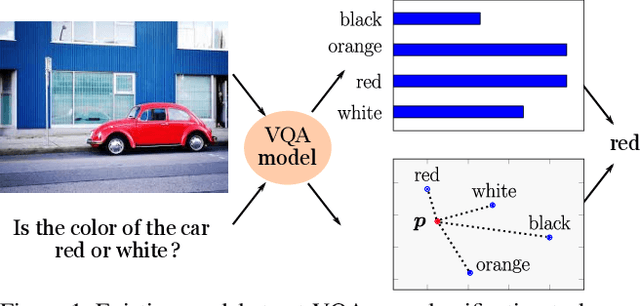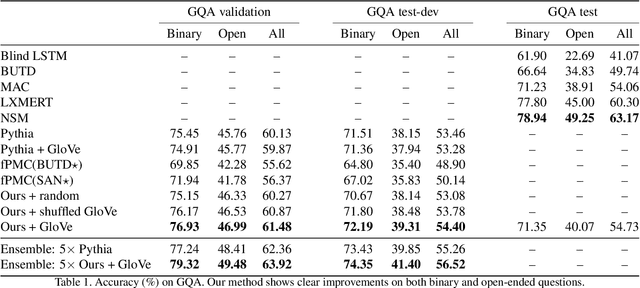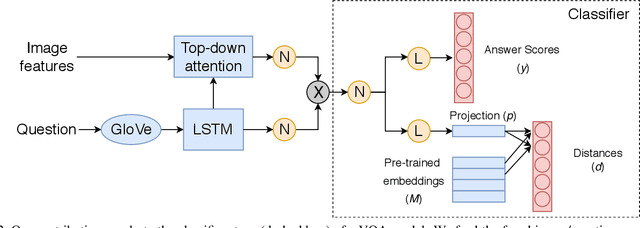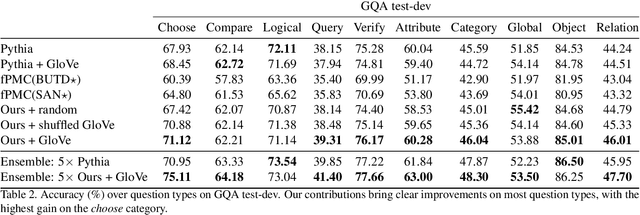Visual Question Answering with Prior Class Semantics
Paper and Code
May 04, 2020



We present a novel mechanism to embed prior knowledge in a model for visual question answering. The open-set nature of the task is at odds with the ubiquitous approach of training of a fixed classifier. We show how to exploit additional information pertaining to the semantics of candidate answers. We extend the answer prediction process with a regression objective in a semantic space, in which we project candidate answers using prior knowledge derived from word embeddings. We perform an extensive study of learned representations with the GQA dataset, revealing that important semantic information is captured in the relations between embeddings in the answer space. Our method brings improvements in consistency and accuracy over a range of question types. Experiments with novel answers, unseen during training, indicate the method's potential for open-set prediction.
 Add to Chrome
Add to Chrome Add to Firefox
Add to Firefox Add to Edge
Add to Edge